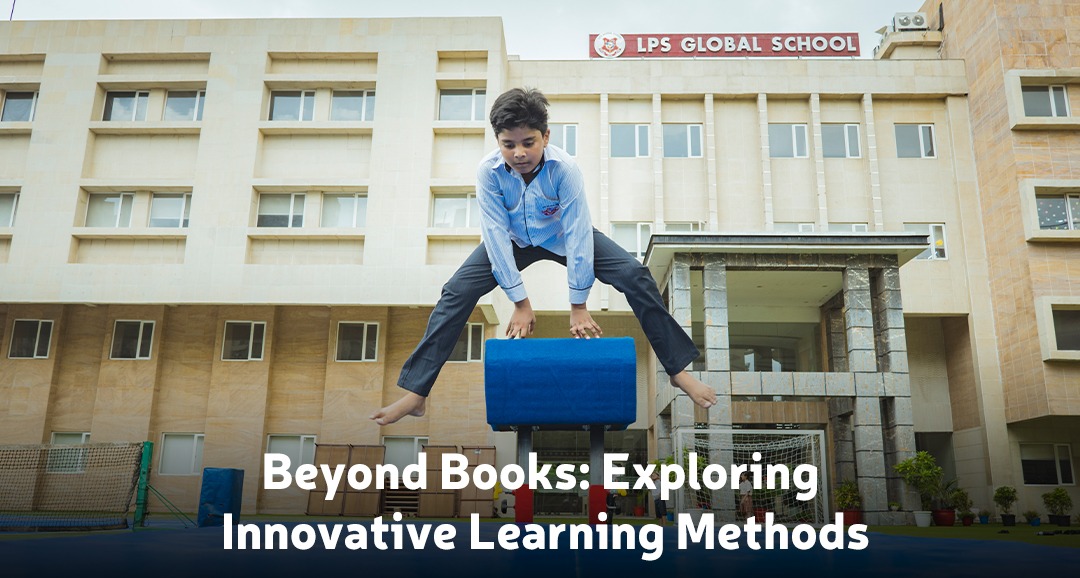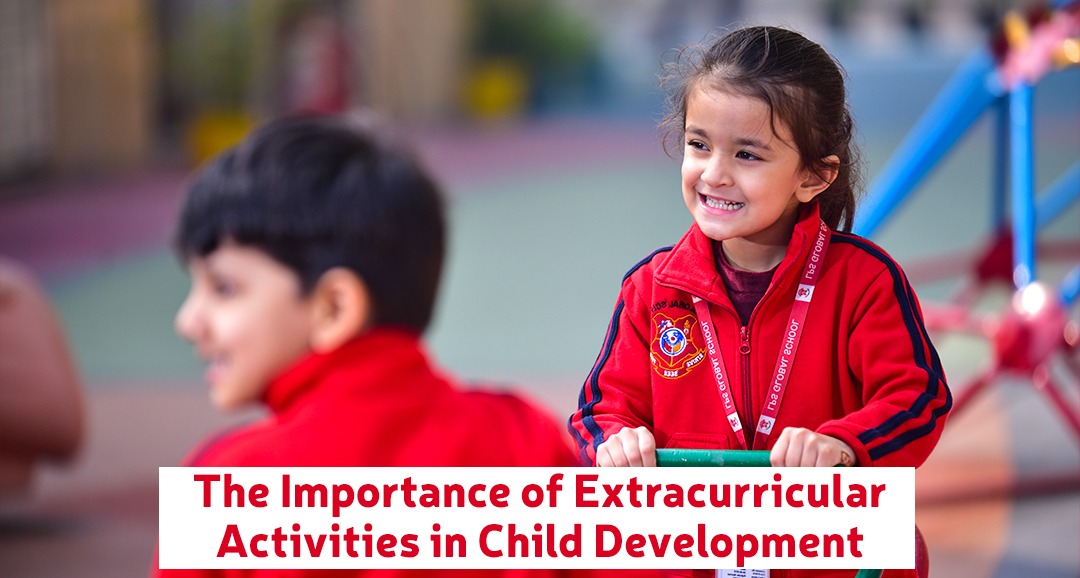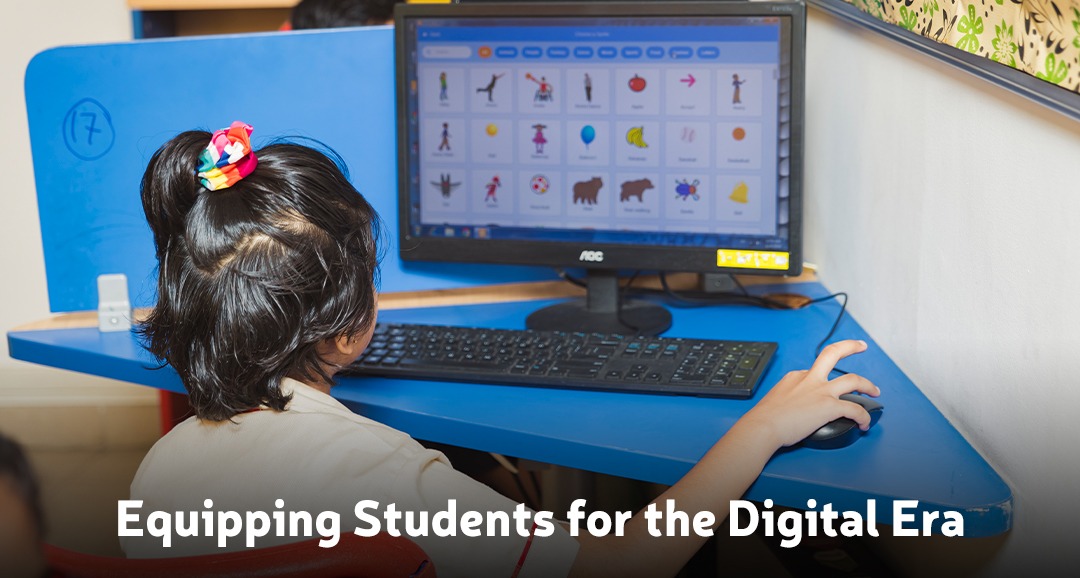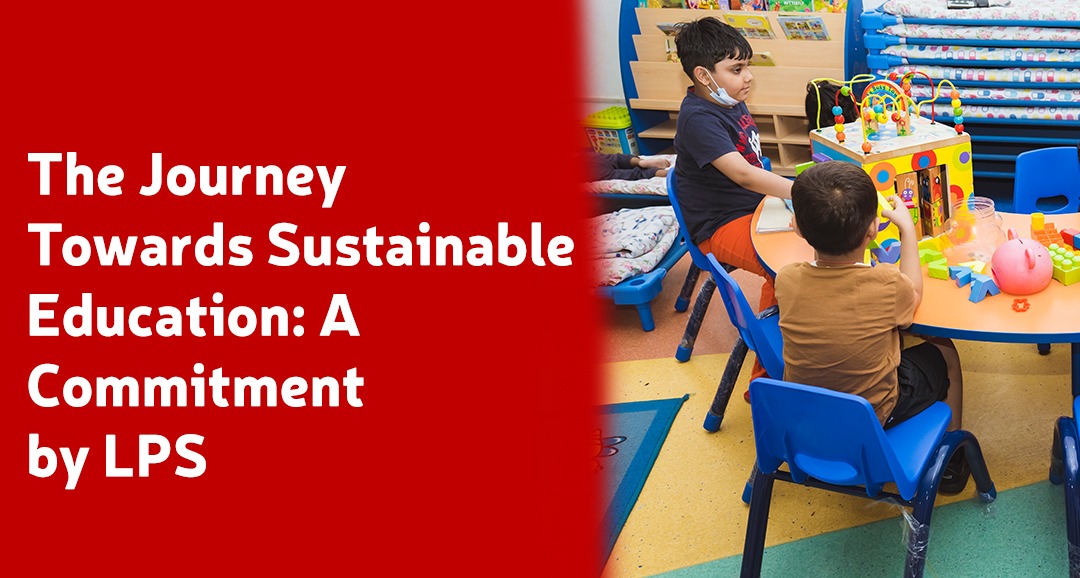Introduction
Education is no longer confined to traditional textbooks and rote learning. In today’s dynamic world, innovative learning methods are essential to engage students, foster creativity, and prepare them for success in the 21st century. At LPS Global School, renowned as one of the Top CBSE Schools in Noida, innovative learning is at the forefront of education. In this article, we explore how School goes beyond books to embrace innovative learning methods that inspire curiosity, critical thinking, and lifelong learning among students.
Project-Based Learning: Hands-On Exploration
Project-based learning (PBL) is a cornerstone of education at School. Instead of passively absorbing information from textbooks, students actively engage in hands-on projects that allow them to explore real-world problems, collaborate with peers, and develop essential skills. Whether it’s designing a sustainable city, conducting scientific experiments, or creating multimedia presentations, PBL encourages creativity, critical thinking, and problem-solving. By immersing students in meaningful projects, which fosters a deeper understanding of concepts and prepares students to apply their knowledge in authentic contexts.
Flipped Classroom: Active Learning
In the traditional classroom model, teachers deliver lectures during class time, leaving little room for active student engagement. At School, the flipped classroom approach turns this model upside down. Students watch pre-recorded lectures or read materials at home, freeing up class time for interactive discussions, collaborative activities, and hands-on learning experiences. This active learning approach allows students to take ownership of their learning, ask questions, and engage in deeper exploration of concepts with the guidance of teachers. By flipping the classroom, the School creates a dynamic learning environment that promotes student engagement and participation.
Gamification: Making Learning Fun
Gamification harnesses the power of games and game design elements to motivate and engage students in learning. At School, gamification is integrated into the curriculum through educational games, simulations, and interactive activities. Whether it’s solving math puzzles, participating in virtual scavenger hunts, or competing in quiz competitions, students are immersed in engaging and immersive learning experiences. Gamification not only makes learning fun and enjoyable but also promotes collaboration, competition, and problem-solving skills. By gamifying learning, School also motivates the students to actively participate in their education and achieve academic success.
Maker Education: Cultivating Creativity and Innovation
Maker education empowers students to become creators, inventors, and problem solvers by providing them with opportunities to design, build, and prototype projects using a variety of tools and materials. At School, maker education is integrated into the curriculum through maker spaces, STEAM (Science, Technology, Engineering, Arts, and Mathematics) labs, and hands-on workshops. Whether it’s coding robots, 3D printing prototypes, or designing electronic circuits, students unleash their creativity, experiment with new ideas, and develop essential skills such as critical thinking, creativity, and resilience. Maker education fosters a culture of innovation and entrepreneurship, preparing students to thrive in a rapidly changing world.
Inquiry-Based Learning: Fostering Curiosity and Exploration
Inquiry-based learning empowers students to ask questions, investigate topics of interest, and construct their own knowledge through exploration and discovery. Inquiry-based learning is woven into the fabric of the curriculum, with teachers serving as guides and facilitators in the learning process. Students engage in open-ended investigations, research projects, and Socratic discussions that encourage critical thinking, curiosity, and independent inquiry. By fostering a culture of inquiry, School cultivates lifelong learners who are curious, reflective, and eager to explore new ideas and perspectives.
Collaborative Learning: Building Connections and Communication Skills
Collaborative learning emphasizes teamwork, communication, and cooperation among students as they work together to achieve common goals. At School, collaborative learning is integrated into the curriculum through group projects, peer-to-peer tutoring, and cooperative learning activities. Students collaborate on projects, share ideas, and learn from one another’s perspectives, fostering a sense of community and belonging in the classroom. Collaborative learning promotes communication skills, teamwork, and leadership abilities, preparing students to collaborate effectively in diverse settings and contexts.
Differentiated Instruction: Meeting the Needs of Every Learner
Every student has unique strengths, interests, and learning styles. Differentiated instruction at School ensures that every student receives personalized support and instruction tailored to their individual needs. Teachers employ a variety of instructional strategies, learning activities, and assessments to accommodate diverse learners and provide opportunities for all students to succeed. Whether it’s through small group instruction, flexible pacing, or differentiated assignments, students receive the support and encouragement they need to reach their full potential. Differentiated instruction promotes inclusivity, equity, and academic excellence for all students.
Outdoor Education: Learning Beyond the Classroom Walls
Outdoor education provides students with opportunities to connect with nature, engage in hands-on experiences, and develop a deeper appreciation for the environment. At School, outdoor education is integrated into the curriculum through field trips, nature walks, and outdoor learning expeditions. Students explore local ecosystems, conduct scientific experiments, and participate in environmental conservation projects that promote ecological awareness and stewardship. Outdoor education fosters resilience, teamwork, and a sense of adventure, enriching the academic experience and promoting holistic development.
Conclusion
The School embraces innovative learning methods that go beyond traditional textbooks and lectures to engage students, foster creativity, and prepare them for success in the 21st century. Through project-based learning, flipped classrooms, gamification, maker education, inquiry-based learning, collaborative learning, differentiated instruction, and outdoor education and also cultivates a dynamic learning environment that inspires curiosity, critical thinking, and lifelong learning. As One of the Best CBSE School in Noida, LPS Global School remains committed to providing innovative educational experiences that empower students to thrive academically, socially, and emotionally.




